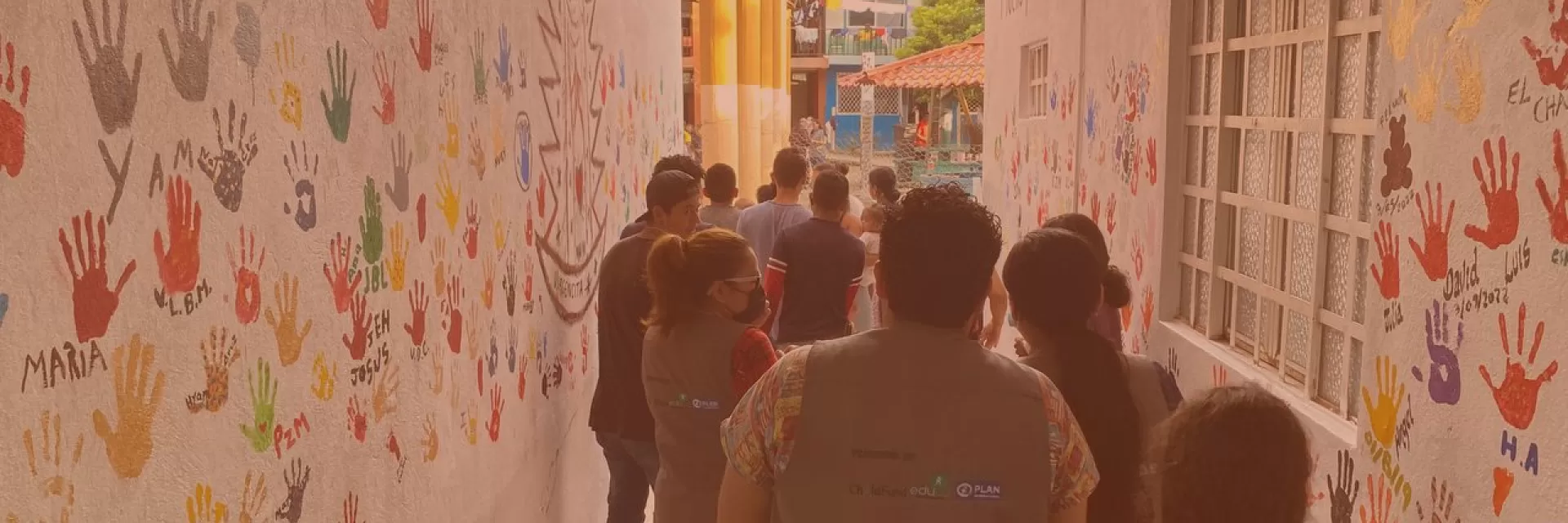Subscribe to our weekly newsletter HERE.
Take Action: Tell Homeland Security to Stop Using Children As Bait
Since publicly announcing the tactic of separating children from their parents when detained by ICE (including asylum seekers), the government has seen an increase in the number of unaccompanied children they need to house.
This Week in Immigration
Just to give a sense of the unrelenting and multi-pronged attack on immigrants being led by the executive branch and likeminded members of Congress, we decided to bring together some stories just from the past few days. It's dizzying, so I tried to keep commentary to a minimum and let the volume of stories speak for itself.
Statement of the Cooperative Movement of Nicaragua on National Dialogue
The Cooperative Movement of Nicaragua issued the statement below on May 5, 2018 regarding their participation in the National Dialogue process, which was formally launched on May 16. As of this writing, Orlando Núñez has not been included at the main table of negotiation as requested in this letter. [Graphic with participants listed, from El Nuevo Diario]. We provide a translation into English below.
Take Action to Stop the Killing in Gaza
“it is not the use of violence that leads to peace. War calls on war, violence calls on violence. I invite all the parties involved and the international community to renew their commitment so that dialogue, justice and peace prevail.” Pope Francis, Audience, May 16, 2018
"Animals" - just another day in the Trumpian Hellscape
In a meeting with California officials to discuss Sanctuary Cities, Trump uttered the following: “We have people coming into the country, or trying to come in — and we’re stopping a lot of them — but we’re taking people out of the country. You wouldn’t believe how bad these people are. These aren’t people. These are animals.”
Nicaragua: An Urgent Call for Solidarity from ATC
Below is a “Call to Solidarity” from The Asociación de Trabajadores del Campo (ATC), or Rural Workers Association in Nicaragua in relationship to the current political crisis. As the international media continues to emphasize only the voices of opposition groups, it is important that we work to get out other perspectives on what is happening.
Manufacturing Dissent: The N.E.D., Opposition Media and the Political Crisis in Nicaragua
The world’s major media outlets have spoken, and the verdict is in: Daniel Ortega is on his way out. After years of cronyism, his dictatorial rule has met with mass popular resistance, a resistance Ortega’s government responded to with unprecedented force. All of this signals that Ortega is isolated and clueless, and that “the people” have had enough.
The Dumpster Fire Rages On
We all know we’re going to die. We understand that fact intellectually, but few of us have what Heidegger called an “authentic being towards death.” For most of us that only comes, if at all, when we come face to face with it – when our death is imminent. Sometimes we get a momentary sense of it when someone close to us dies, especially if that death is unexpected, or if we witness a death.
Inspirational and Influential Women of the World: Dorothy Day
Part VI of the Inspirational and Influential Women of the World Blog Series
"Don't Call Me A Saint." - Dorothy Day
Fling and a Prayer
As briefly noted yesterday, Thursday was an eventful day for church, state, and everything in between.
Quixote Center Reunion - Retrospective
On April 13 and 14, 2018, the Quixote Center Reunion gathered long-standing QC friends and former and current staff members to celebrate our shared history of pursuing impossible dreams. If it felt at times like a high school or college class reunion, there is a good reason. Since its founding 42 years ago, the Quixote Center has often functioned as a school where young, idealistic people learned about the nuts and bolts of working for peace and justice.
What could possibly go wrong?
More on this tomorrow, but...today, on the National Day of Prayer, Trump ushered into being a White House Faith and Opportunity Initiative to attend to “poverty, religious liberty, education, strengthening the family, helping prisoners, mental health and human trafficking.”
I’m sure they’ll do a great job.


